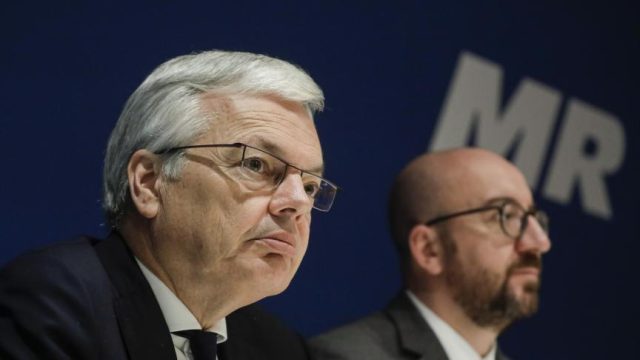
On 14 December, the last regular European Council meeting of the year discussed, among other items, defence, migration and the revision of the EU’s multiannual financial framework (MFF).
On the matter of security and defence, the European Council conclusions filled with words not less than nine paragraphs and subparagraphs, though nothing spectacular was actually decided.
Let us start with the last paragraph, namely paragraph 27. Here, despite the complementarity of a stronger and a more capable European Union in the field of security and defence to NATO, the latter was proclaimed to remain the foundation of collective defence for its members.
However, an interesting very last sentence was added: “This is without prejudice to the specific character of the security and defence policy of certain Member States.” Such a statement recognises the vision, aim and will of some EU Member States to develop their own defence capabilities as a strong security policy.
This important political recognition can be put in connection with paragraph 26 of the conclusion, which underlines the industrial opportunity to develop defence readiness, expenditure, investment and capability, as well as a market for defence.
Paragraph 25, on the contrary, points to the utilisation of defence to further Union centralisation with some well-known euphemisms, such as “delivering an ambitious geopolitical Union”, or “increasing capacity to act autonomously in the context of global instability, strategic competition and security threats”.
This paragraph comes first in comparison to the other two, but in any case the three of them need to be put in connection – and they reflect the two contending visions of how the European Union should evolve in the coming years.
On the other hand, the meeting dedicated three paragraphs to conclusions on migration. The conservative issues of a more effective protection of the EU external borders and resolutely fighting organised crime, human trafficking and smuggling, and the instrumentalisation of migration as a hybrid threat were positively included.
In particular, the European Council strongly condemned all so-called “hybrid attacks”, such as the instrumentalisation of migrants by third countries for a political purpose. This is in connection with the risk undergone by some EU Member States, such as Finland, to counter the ongoing hybrid attacks at its external borders launched by Belarus, or by the Russian Federation.
Finally, the European Council endeavoured to find an agreement on the MFF revision at the halfway point of the seven-year 2021-2027 budget. Here, 26 Member States supported adjustments, though in order to reach unanimity the decision was postponed until early next year.
Hungary was the Member State to freeze confirmation. Despite the fact that the European Commission, through its Justice highest official Mr. Reynders, had announced only 24 hours earlier that a part of the so far blocked Next Generation funds would be disbursed in favour of Mr. Orbán’s government, the conservative politician held his cards wisely.
This reminds us of the film “The Great Scout and Cathouse Thursday”, where the different characters mistrust each other and only pay their debts when they are sure not to be tricked by their counterparts.
The main reason for the EU budget increase is support for Ukraine, “with up to 50 billion euros worth of loans and subsidies over the next four years,” according to Germany’s Federal Chancellor. However, the EU also needs to dispose of more money in aid for the accession process of the Western Balkan states, and to manage migration. Poor migration policy and management in the past costs extra resources in the future.
On perhaps the most delicate geopolitical issue at the moment, the Israeli-Palestine conflict in the Middle East, the European Council held “an in-depth strategic debate”, but failed to reach a conclusion.
Source of image: Le Soir



 Subscribe
Subscribe